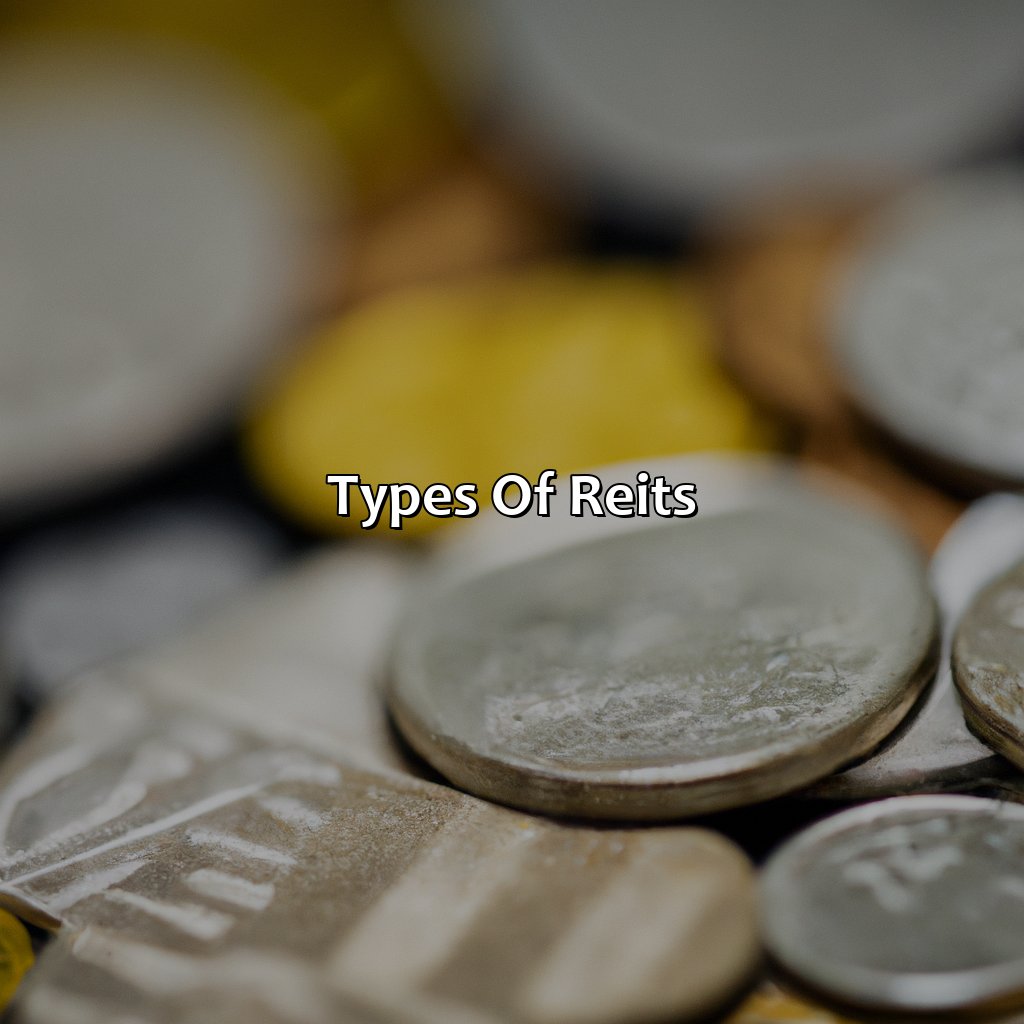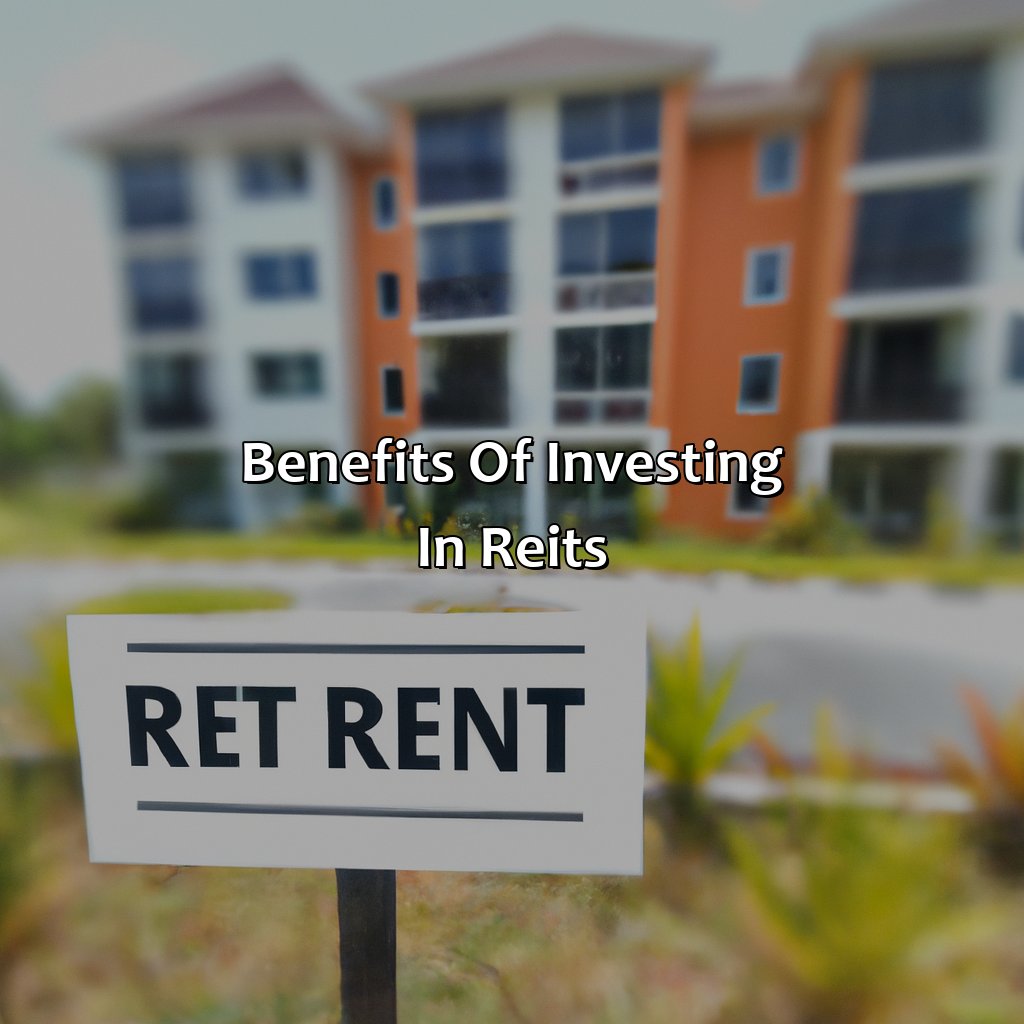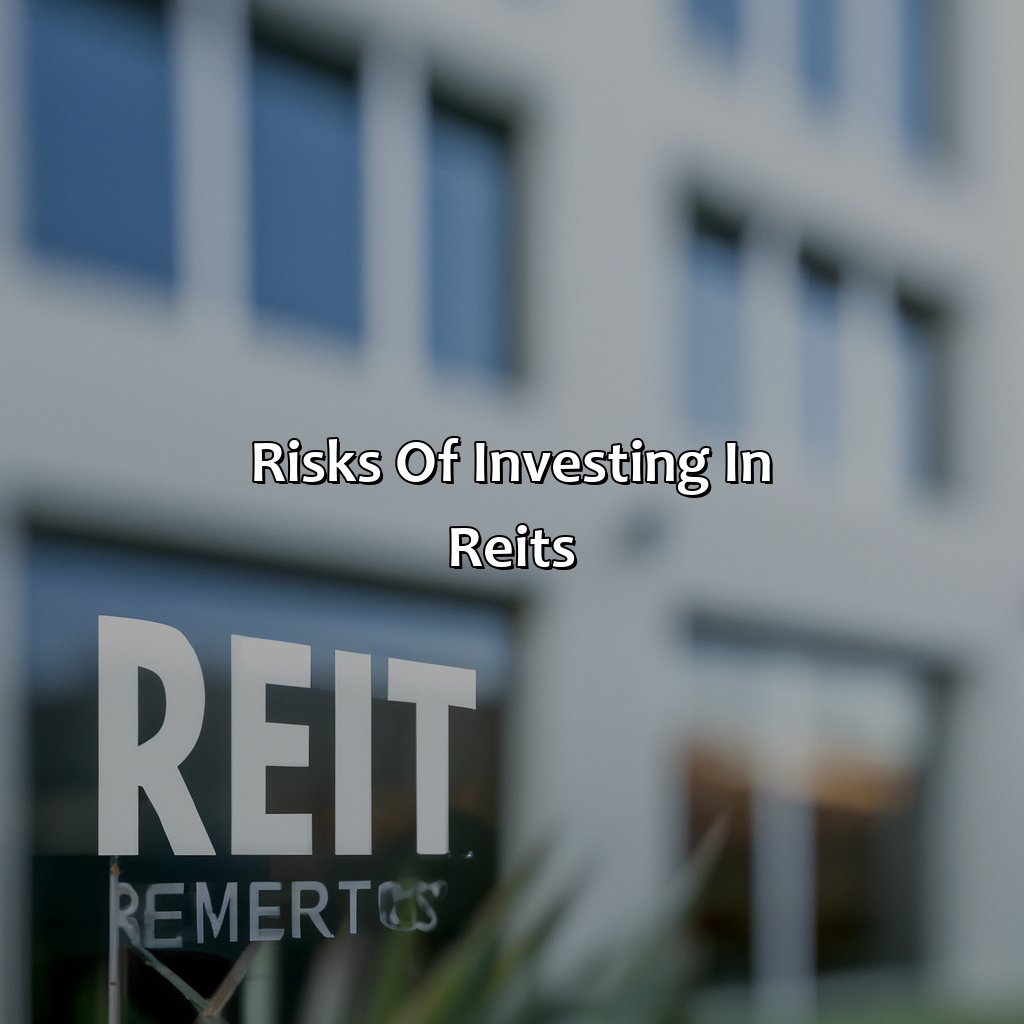What Are Real Estate Investment Trust?
Key Takeaway:
- Real Estate Investment Trusts, or REITs, are companies that own and operate income-producing real estate, and they offer investors an opportunity to gain exposure to the real estate market without having to purchase property outright.
- There are different types of REITs, including Equity REITs which own and manage properties, Mortgage REITs which invest in mortgages and mortgage-backed securities, and Hybrid REITs which combine the features of both equity and mortgage REITs.
- Investing in REITs can provide benefits such as high dividend yields, diversification, professional management, and liquidity. However, it is important to consider the risks associated with REITs, such as interest rate risks, market risks, and management risks, in order to determine whether they are a suitable investment option.
Are you looking for a safe and consistent way to make a return on your investment? Real Estate Investment Trusts (REITs) may be the answer. They provide investors with access to professionally managed, diversified portfolios of income-producing real estate assets. Read on to discover more about this profitable investment option.
Definition of REIT
Real Estate Investment Trusts (REITs) are investment vehicles that own and operate real estate properties, generating income from them for investors. These trusts pool funds from multiple investors and purchase a portfolio of properties, which can include various types such as commercial, industrial, residential, or even mortgages. REITs must distribute at least 90% of their taxable income to shareholders annually, qualifying them for favorable tax treatment. By investing in REITs, investors gain exposure to a diversified pool of real estate properties, without directly owning them.
Investing in REITs offers various benefits, including portfolio diversification, steady income, and liquidity. Investors can purchase and sell shares of a REIT on stock exchanges just like any other stock. Additionally, REITs that specialize in a specific type of property sector (e.g., healthcare or hospitality) offer more targeted investment opportunities. However, investors should be aware of the risks associated with REITs, such as fluctuations in real estate markets and potential changes in interest rates.
According to the National Real Estate Investor, in 2020, the total market capitalization of US publicly-traded REITs reached $1.12 trillion, reflecting the growing interest in these investment vehicles.

Image credits: retiregenz.com by Harry Washington
Types of REITs
To understand the kinds of Real Estate Investment Trusts, let’s take a look at the sub-types. There are Equity REITs, Mortgage REITs, and Hybrid REITs. Each type provides different advantages for investors depending on their risk attitude and objectives. Knowing this, you can make wise choices when it comes to investing in Real Estate Investment Trusts.
Image credits: retiregenz.com by Yuval Jones
Equity REITs
Real estate investment trusts that focus on equity are known as ownership REITs. They function by purchasing and managing real estate properties with the goal of generating revenue from rent, leasing agreements, or appreciation in property value. Owners of these REITs are entitled to a share of any profits or losses generated by the investments made by the trust.
Ownership REITs offers investors an opportunity to diversify their portfolio holdings without having to deal with directly owning physical properties. These types of REITs usually invest in commercial or residential properties and distribute most of their income to shareholders in the form of dividends. In contrast to mortgage-based REITs, equity-based trusts generate revenue through rental income rather than interest on loans.
Unlike traditional property investments which require significant amounts of capital and may be difficult to manage for individual investors, ownership REITs provide a simpler path towards investing in real estate. By pooling investor funds together to purchase high-value commercial or residential properties, these trusts can offer larger returns on investment with lower barriers to entry.
In 2019, Equity Commonwealth, an ownership REIT focused on acquiring and managing high-quality office buildings across the United States with over $4 billion in assets under management.
Who needs actual property when you can just invest in other people’s mortgages? Sounds like the plot of a horror movie, but it’s just Mortgage REITs.
Mortgage REITs
Real estate investment trusts focused on mortgage investments can be referred to as an REIT that specializes in mortgages. Mortgage REITs generate revenue by investing primarily in residential and commercial mortgages, and then take advantage of the interest rate spread between the income earned from those mortgages and their cost. These types of REITs differ from other real estate investment trusts, which may own physical assets like buildings or land.
A key aspect of mortgage REITs is that they don’t typically invest in physical properties themselves but rather buy securities backed by underlying assets such as mortgages. They provide investors with high dividend yields due to their highly leveraged nature, but also come with high levels of risk. Investors interested in this type of REIT should have a good understanding of interest rate fluctuations and how they impact earnings.
It’s important to note that different types of mortgage REITs exist based on the type of mortgages they invest in or specializations they may have such as single-family homes or commercial real estate. This variety within the category allows investors to target specific segments of the market for better portfolio diversification.
Mortgage REITs originated during the 1960s when Congress passed laws allowing public entities to offer debt products secured by real estate investments. By the middle 1970s, these companies began exclusively offering mortgage-based securities to create more accessible options for small investors entering the property markets through such offerings.
Hybrid REITs – because why settle for just one type of real estate when you can invest in a mash-up of them all?
Hybrid REITs
These REITs focus on both equity and mortgage instruments, making them the ideal hybrid investment vehicles for investors who want to diversify their portfolios. They offer the benefits of both equity and mortgage REITs, such as stable cash flows from leases and regular dividend payments, as well as investing in mortgages. Hybrid REITs can invest in a variety of property types such as malls, shopping centers, apartments, offices or hotels.
Some hybrid REITs may lean heavily towards one form of investment, while others may split their investments equally between equity and mortgage instruments. It is important to research individual hybrid REITs to determine which one is best suited for your portfolio goals.
Pro Tip: Before investing in a hybrid REIT, ensure that you carefully consider the company’s financial performance, management efficiency and industry trends to help mitigate potential risks.
Investing in REITs is like buying a piece of the real estate pie, but without the hassle of actually having to bake it yourself.
Benefits of Investing in REITs
Want to benefit from investing in REITs? Read on!
High dividend yields, diversification, professional management, plus liquidity – all these make investing in REITs a smart move. Gain profit and financial security. Start now!

Image credits: retiregenz.com by Joel Jones
High dividend yields
Real Estate Investment Trusts offer various advantages, including a significant return on investment through high dividend payments.
- REITs provide dividend yields significantly higher than traditional stocks.
- These high dividends are made possible due to their tax structure mandated by law.
- Investors can choose between Equity and Mortgage rules REITs that provide different yield rates.
- Diversification of the investment portfolios is provided because REITs invest in multiple properties and asset classes.
- The real estate market’s stability helps maintain consistent income generation over time with lower volatility while protecting investors against inflation risk.
REITs are an excellent option for those looking for a higher, steady income stream without having to participate actively in managing real estate assets.
Some suggestions would be to select REITs that align with one’s risk tolerance and investment goals while understanding the underlying assets affect dividend payouts. In addition, considering investing in REIT ETFs or mutual funds that provide ample diversification at lower expense ratios can also help achieve long-term wealth accumulation.
Putting all your eggs in one real estate basket is like investing in a haunted house- both are scary and risky.
Diversification
A key advantage of investing in real estate investment trusts (REITs) is the ability to diversify one’s portfolio across a variety of property types. This variation can include retail, office, residential and industrial properties, along with infrastructure projects such as data centers or cell towers. By spreading investments across these various sectors, investors can mitigate their risks and reduce market volatility.
In addition to providing investors with diversification benefits, REITs also offer significant liquidity advantages. These investment vehicles are publicly traded on major stock exchanges and can be bought and sold easily. This high level of liquidity allows investors to quickly adjust their portfolio as necessary in response to changing market conditions.
Furthermore, an important aspect of REITs is that they must distribute at least 90% of their taxable income to shareholders annually. This mandate creates consistent dividend income for investors, making REITs an attractive option for those seeking reliable cash flow from their investments.
Real estate investment trusts have proven themselves to be a valuable asset class in any well-diversified investment portfolio. One successful example of this was when retirement savers incorporated REITs into their accounts prior to the 2008 financial crisis – it played a key role in mitigating their risks, ultimately helping them preserve their savings.
Leave the property management drama to the experts with REITs, because who needs the stress of a leaky faucet when you can sit back and collect dividends?
Professional management
Real estate investment trusts (REITs) offer the benefit of expert management, ensuring that investments are carefully managed to produce optimum returns. REITs appoint seasoned professionals to oversee finances, create sustainable business strategies, and maintain high-performance standards.
These specialized managers work round-the-clock to ensure all aspects of property ownership — from acquisition to development and divestment — are executed seamlessly. They have extensive experience in real estate investing, market trends, and asset allocation which they use to blend portfolios and optimize profits.
One unique advantage of professional management in REITs is that the teams have access to large pools of capital, enabling them to make significant acquisitions, diversify portfolios across markets and properties, as well as undertake value-adding developments. All these aspects combine to create a competitive edge for investors.
To fully leverage the benefits offered by professional management in REITs investors can consider investing in mutual funds or exchange-traded funds (ETFs) instead of individual company portfolios. This strategy enables investors who may lack expertise in identifying winning stocks with greater diversification at lower portfolio risks while still benefiting from gains earned through professional management.
REITs are so easy to buy and sell, it’s like Tinder for real estate investors.
Liquidity
Real estate investment trusts (REITs) are highly liquid opportunities to invest in real estate without owning property. This means that investors can easily convert their shares into cash when needed. The liquidity of REITs is due to the regular trading on major stock exchanges, allowing easy access to buyers and sellers.
In addition to the ease of buying and selling, REITs offer a distinct advantage over traditional real estate investments as they have lower minimum investments and no transaction costs. Investors can also diversify their portfolios with REITs, benefiting from both high current income and potential long-term capital appreciation.
It’s worth noting that not all REITs are equally liquid, with some specializing in niche areas like healthcare or data centers. Therefore, it’s important for investors to research different types of REITs before investing to ensure adequate diversification.
To increase liquidity further, investors may consider investing in exchange-traded funds (ETFs) that hold a variety of REITs. This provides additional diversification while maintaining high liquidity levels.
Investing in REITs offers many benefits in terms of liquidity, diversification, and accessibility for investors looking to gain exposure in the real estate market without taking on the risks associated with direct ownership.
Ready to play a risky game of Monopoly with your money? Introducing the Risks of Investing in REITs, where bankruptcies and market downturns are just part of the fun!
Risks of Investing in REITs
To grasp the danger of investing in Real Estate Investment Trusts (REITs), you must be conscious of the components that lead to potential losses. Let’s look at the various risks of investing in REITs. These include:
- Interest rate risks
- Market risks
- Management risks
By recognizing these risks, you can make smart decisions and reduce losses when investing in REITs.

Image credits: retiregenz.com by David Jones
Interest rate risks
With increased interest rates, investors in real estate investment trusts (REITs) may face potential losses as their affordability for assets diminishes. This results in a negative impact on the market value of these securities. In such scenarios, REITs’ ability to provide attractive returns are limited as compared to high-yield bonds or other securities.
Furthermore, it’s important to note that while higher interest rates can impact the share prices of REITs negatively, lower rates do not guarantee positive effects. The reason is that when interest rates drop substantially, it motivates demand for property acquisition and therefore drives up asset prices.
Pro Tip: As an investor, keep an eye on the economy and trends related to interest rates to make informed investment decisions in REITs.
Don’t worry, the market always goes up and down, just like a yo-yo, only with the added thrill of potentially losing all your money.
Market risks
Real estate investment trusts (REITs) are subject to numerous market-related risks. The fluctuation of interest rates, changes in macroeconomic conditions, and shifts in investor sentiment are major factors impacting the financial performance of REITs. One of the significant market risks that investors face is liquidity risk—the inability to convert REIT shares into cash quickly.
Investors also bear exposure to currency exchange risk when investing in global REITs that operate in foreign markets. Such a risk arises from fluctuations in exchange rates between the currencies of countries where REIT operates and investor’s native currency. Market risks may also emerge from any undetected or unanticipated business model deficiencies that either affect financial performance or operational activities of real estates owned by the entity.
Most of these market-related risks can be mitigated through effective due diligence on property assets, quality management, portfolio diversification into different real estate sectors such as agriculture land, commercial space and options on geographical regions across the world.
According to Forbes, since 2010 there have been 34 instances where a REIT has cut its full-year dividend payment which may lead investors vulnerable to significant losses.
“Sure, you can trust your money with a real estate investment trust, but can you trust their management? It’s like betting on a horse with a questionable jockey.”
Management risks
Real estate investment trusts (REITs) involve management risks that investors should consider. The primary focus of this type of risk is on the quality of management and their decision-making processes. Management risks can arise from factors such as poor leadership, inadequate resources, lack of experience or expertise in real estate investment, or insufficient oversight. Investors need to assess whether the REIT has competent management capable of making sound investment decisions and managing assets effectively.
In addition to evaluating the competence of a REIT’s management, investors must also consider how these individuals are compensated. Poor alignment between management and shareholder interests could lead to mismanagement or inappropriate risk-taking. It is crucial to analyze the incentives provided to managers and ensure they are motivated by long-term growth prospects rather than short-term gains.
Moreover, governance practices at REITs require careful consideration because they significantly impact shareholder rights. It is essential to investigate whether a REIT adheres to best practices concerning board composition, member independence, transparency, conflicts of interest, and executive compensation.
A few years ago, one prominent REIT suffered significant negative publicity due to its weak governance practices leading shareholders into large losses. Due diligence in analyzing governance practices is critical as it allows investors to mitigate overall risk levels associated with investing in REITs.
Some Facts About Real Estate Investment Trust:
- ✅ Real Estate Investment Trust or REIT is a type of investment vehicle that allows individuals to invest in income-producing real estate without actually owning it. (Source: Investopedia)
- ✅ REITs typically have high dividend yields and provide investors with a source of regular income. (Source: Forbes)
- ✅ REITs are required by law to distribute at least 90% of their taxable income to shareholders annually in the form of dividends. (Source: Nareit)
- ✅ There are three main types of REITs: equity REITs, mortgage REITs, and hybrid REITs. (Source: The Balance)
- ✅ REITs are traded on major stock exchanges just like stocks and can be bought and sold through brokerage accounts. (Source: SEC)
FAQs about What Are Real Estate Investment Trust?
What are real estate investment trusts?
Real Estate Investment Trusts (REITs) are companies that own and operate income-producing real estate properties. These properties can range from apartment buildings, shopping centers, hotel and resorts, to office buildings, hospitals, and more. REITs provide a way for investors to invest in real estate without having to own the physical property themselves.
How do REITs make money?
REITs generate income by renting, leasing, or selling properties they own. The income generated is then distributed to shareholders in the form of dividends. REITs must distribute at least 90% of its taxable income to shareholders in order to maintain its status as a tax-advantaged investment vehicle.
What are the benefits of investing in REITs?
Investing in REITs provides an attractive way to diversify your portfolio. REITs typically offer higher dividend yields than other stocks and also provide a hedge against inflation. Additionally, REITs can provide exposure to real estate which can be more stable and predictable than other sectors of the stock market.
Can anyone invest in REITs?
Yes, anyone can invest in REITs. REITs are publicly traded on stock exchanges and can be purchased through a brokerage account. However, it is important to remember that investing in REITs, like any investment, carries risks and it is important to understand the risks and rewards before investing.
Are all REITs the same?
No, all REITs are not the same. There are different types of REITs, such as equity REITs, mortgage REITs, and hybrid REITs, each with different investment strategies and risk profiles. It is important to understand the structure and investment philosophy of the particular REIT before investing.
What is the difference between public and private REITs?
Public REITs are traded on stock exchanges and are available for anyone to buy. Private REITs are not publicly traded, and can only be purchased through private placement offerings. Private REITs are typically less liquid and carry higher minimum investment requirements than public REITs.
